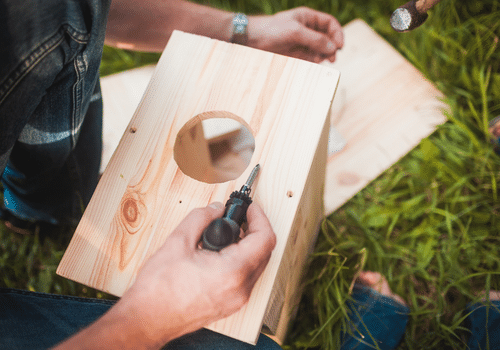So you’ve finally perfected that birdhouse collection made from recyclable materials that you’ve been working on since the beginning of COVID-19. After uploading a proud picture of your craft to your personal social media account, the unexpected happens – people want to buy your birdhouses!
And here it is.
The very important question: is your birdhouse making still a hobby or is it now legally considered a business?
How do you determine if your activity is a business or hobby?
Here’s the short answer: A business operates to make a profit, while people engage in hobbies for sport or recreation – even if they make money from it.
But as with anything, there are some gray areas.
Here are 9 IRS factors to help you differentiate between a hobby and business.
Consider whether you:
- Carry out activity in a businesslike manner (such as maintaining complete and accurate records/books)
- Intentionally put effort in to make the activity profitable
- Depend on income from the activity for your livelihood
- Experience any losses due to circumstances beyond your control or that are normal for the startup phase of your type of business
- Change methods of operation to improve profitability
- Have the knowledge needed, along with your tax adviser, to carry out the activity as a successful small business
- Made a profit in similar activities in the past
- The amount of profit you made in prior or current year(s)
- Can expect to make a future profit from the appreciation of the assets used in the activity
The IRS tends to look more closely at hobbies that have greater potential to be businesses, including fishing, craft sales, dog breeding, horse racing, photography and writing.
Remember that even if the hobby isn’t considered a business, any income from it must be reported on Schedule 1, Form 1040, Line 8.
Although the aforementioned IRS information can be helpful in distinguishing between a hobby and a business, we recommend reaching out to a tax professional for any personal tax assistance or questions you may need.
Success starts with CPA Self-Study
Interested in exploring this topic further while earning CPE credits?
CPA Self-Study offers courses such as How to Run and Organize a Small Business (SBDP), which offers the step-by-step procedures that equip aspiring small business owners and entrepreneurs to set up and maintain a thriving business. You’ll learn how to develop a business plan, taxes and financing, market entry strategies, organization and management, financing, internet marketing, software, and other critical factors that position small business owners and entrepreneurs for success.

